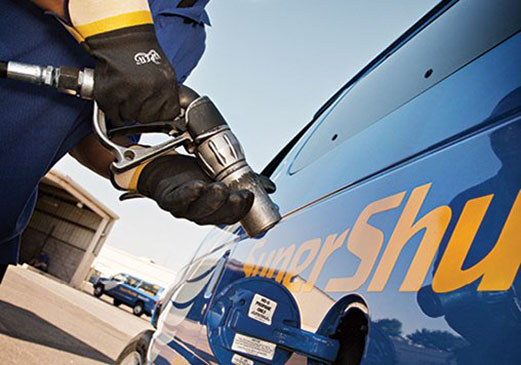Propane vs. electric powered cars
There’s been a lot of talk lately about achieving net-zero emissions by the middle of the 21st century, with countries around the world committing to actions designed to ensure a livable climate throughout the world for generations to come. Investments in all-electric vehicles and vehicle recharging infrastructure have featured prominently in those discussions.
According to the U.S. Environmental Protection Agency, the transportation sector is one of the largest contributors to greenhouse gas emissions, making it a more than appropriate focus for the world’s zero emissions objective. We don’t need to wait to start making improvements when viable alternatives such as propane autogas are available today.

The Propane Education & Research Council says there are nearly 200,000 on-road propane vehicles in the United States. Many are used in fleet applications, such as school buses, shuttles, and police vehicles. The owners and managers of these fleets are enjoying a number of great benefits. Among these are significant reductions in greenhouse gas, nitrogen oxide (NOx), and carbon monoxide (CO) emissions.
There’s a great article here that shares the ins and outs of propane autogas and electric vehicles. Here are some of the highlights:
- Upfront costs - The initial cost of these two different vehicles can differ significantly, with a class 4-7 electric vehicle having a price tag of up to 4 times higher than a comparable propane autogas vehicle.
- Fueling time - Refueling a propane autogas vehicle is similar to filling a traditional gasoline-powered vehicle at the pump. And much like filling up a gasoline vehicle, the process takes minutes. Recharging electric vehicles can take up to five hours, significantly reducing the amount of time they can be put to use.
- Range - Propane vehicles have the range advantage as well, with Class 4-7 propane autogas vehicles achieving a range of up to 350 miles on a single fueling compared to a range of approximately 120 miles for electric work trucks.
- Battery costs - Experts say that battery costs must come down before electric vehicles become a more reasonable option for many. Those not interested in however long that wait might be can enjoy a number of benefits with propane autogas.
Ready to learn more about the many benefits of propane autogas and how easy it is to make the switch?
Connect with a Ferrellgas Account Manager today!
CATEGORIES
Archives
- Summer 2025
- Spring 2025
- Winter 2024
- Fall 2024
- Summer 2024
- Spring 2024
- Winter 2023
- Fall 2023
- Summer 2023
- Spring 2023
- Winter 2022
- Fall 2022
- Summer 2022
- Spring 2022
- Winter 2021
- Fall 2021
- Summer 2021
- Spring 2021
- Winter 2020
- Fall 2020
- Summer 2020
- Spring 2020
- Winter 2019
- Fall 2019
- Summer 2019
- Spring 2019
- Winter 2018
- Fall 2018
- Summer 2018
- Spring 2018
- Winter 2017
